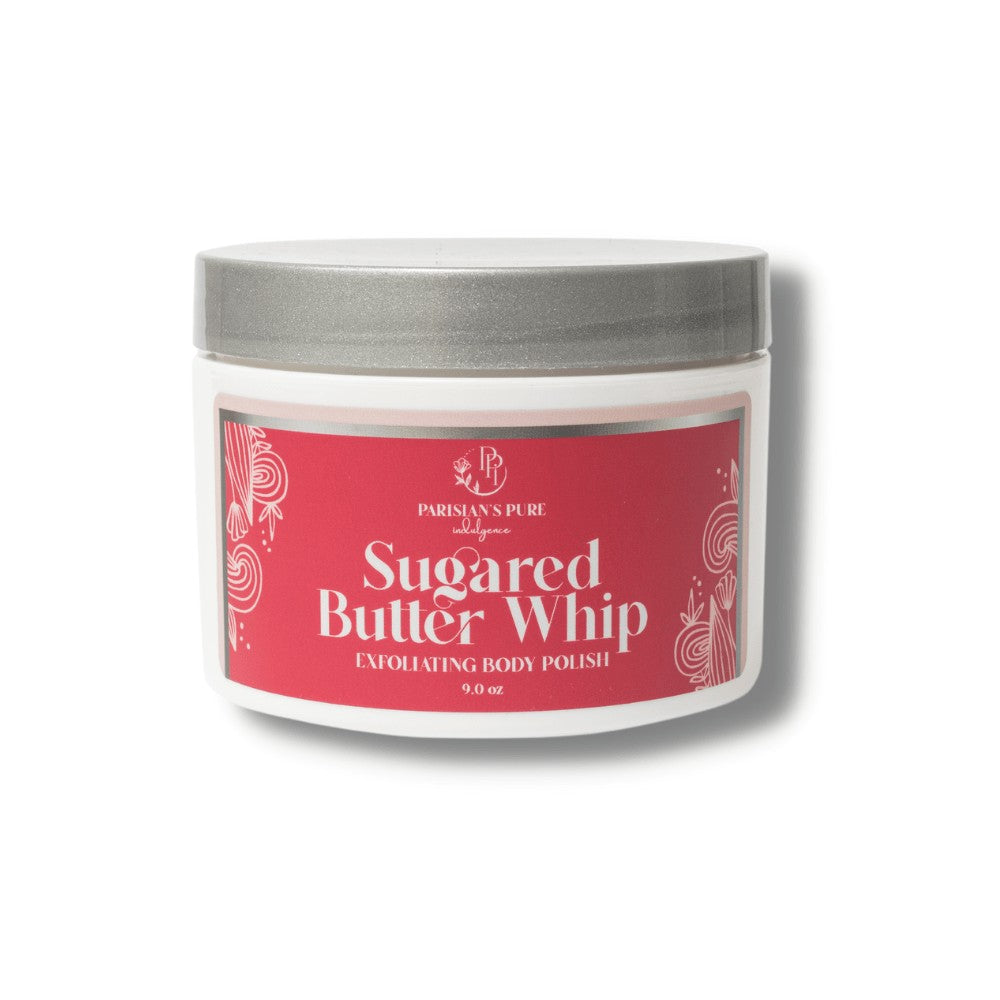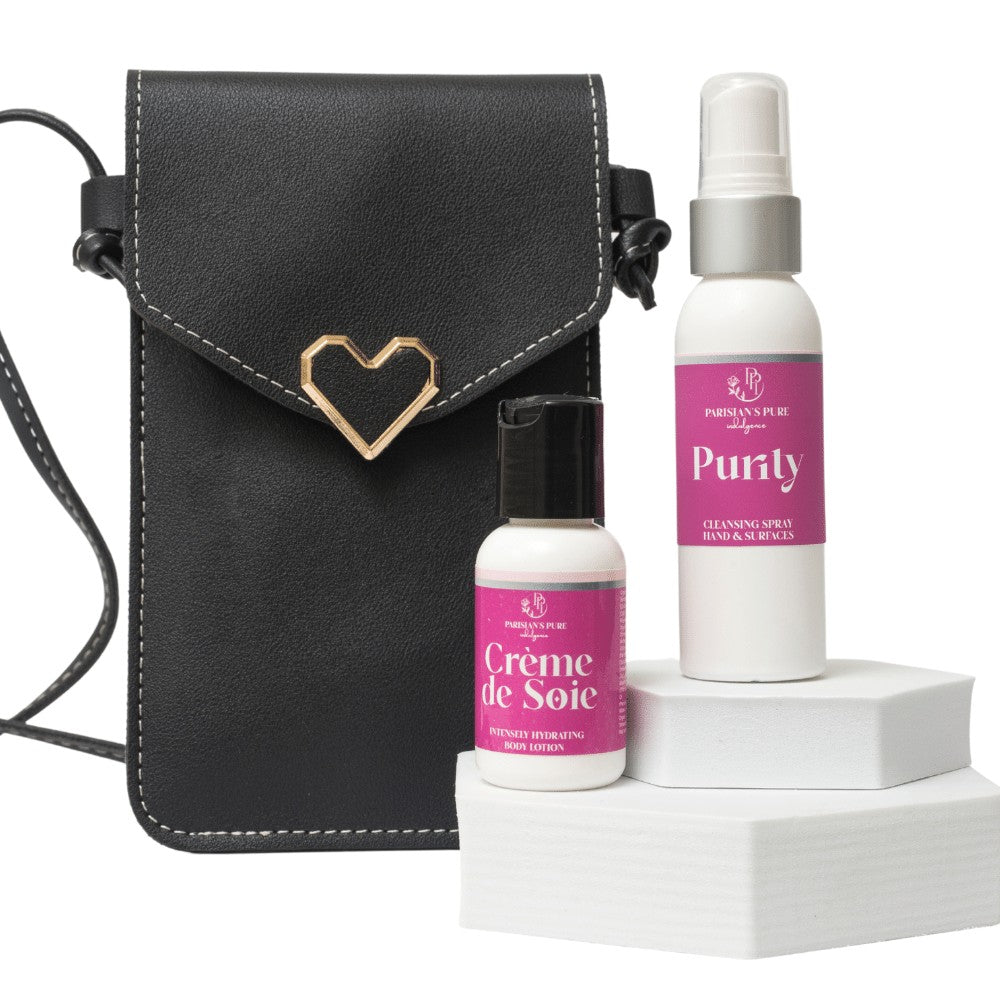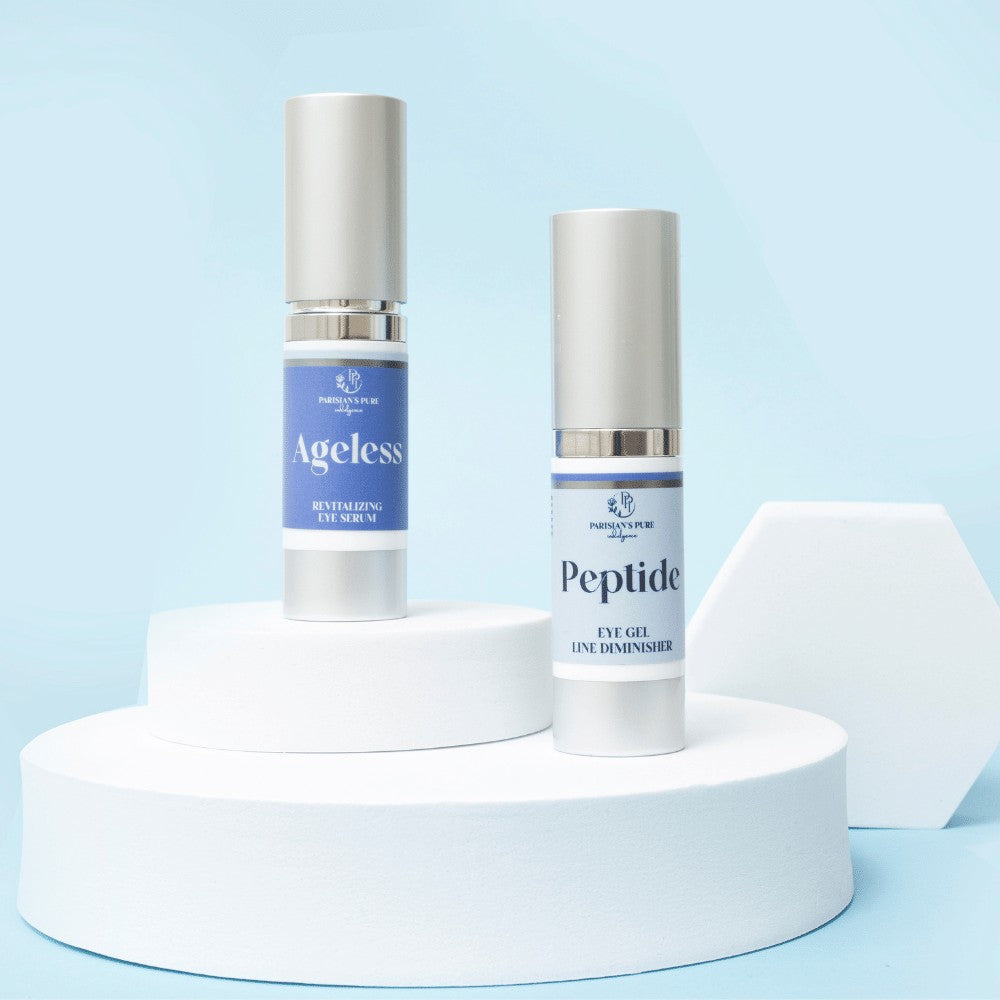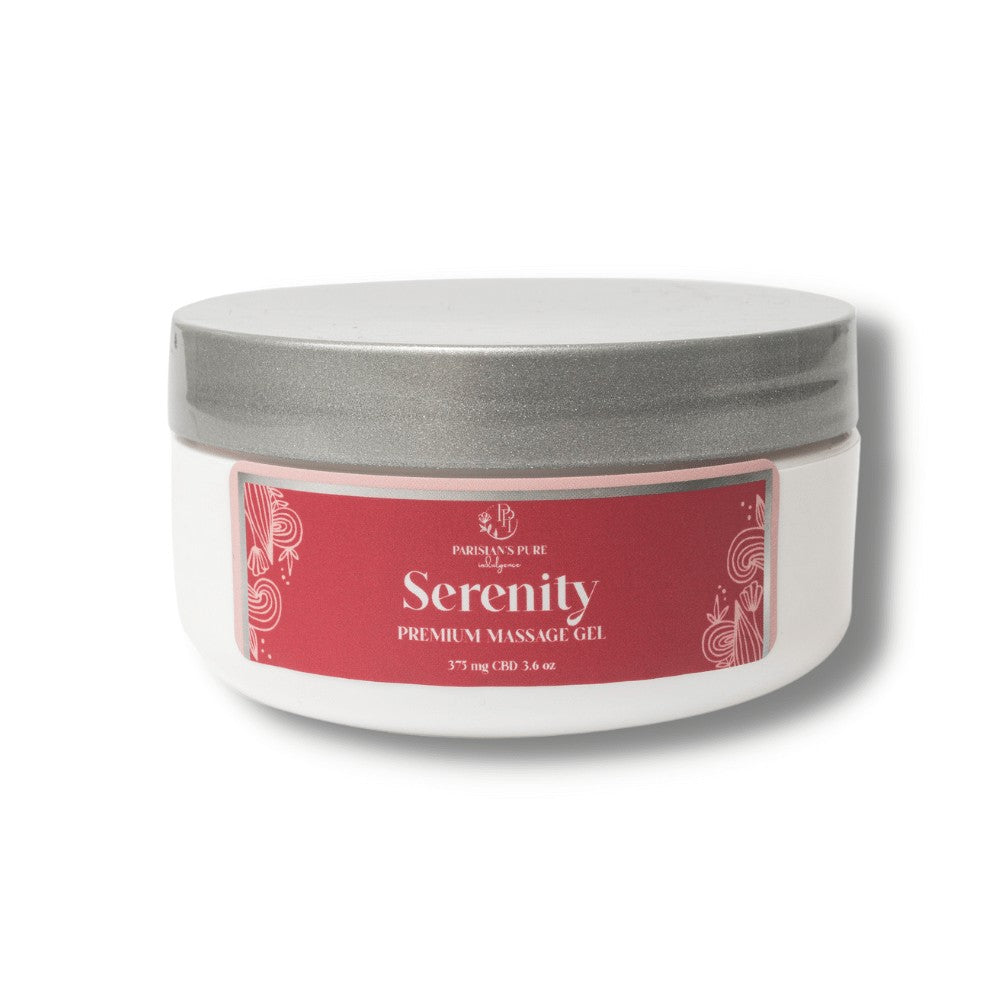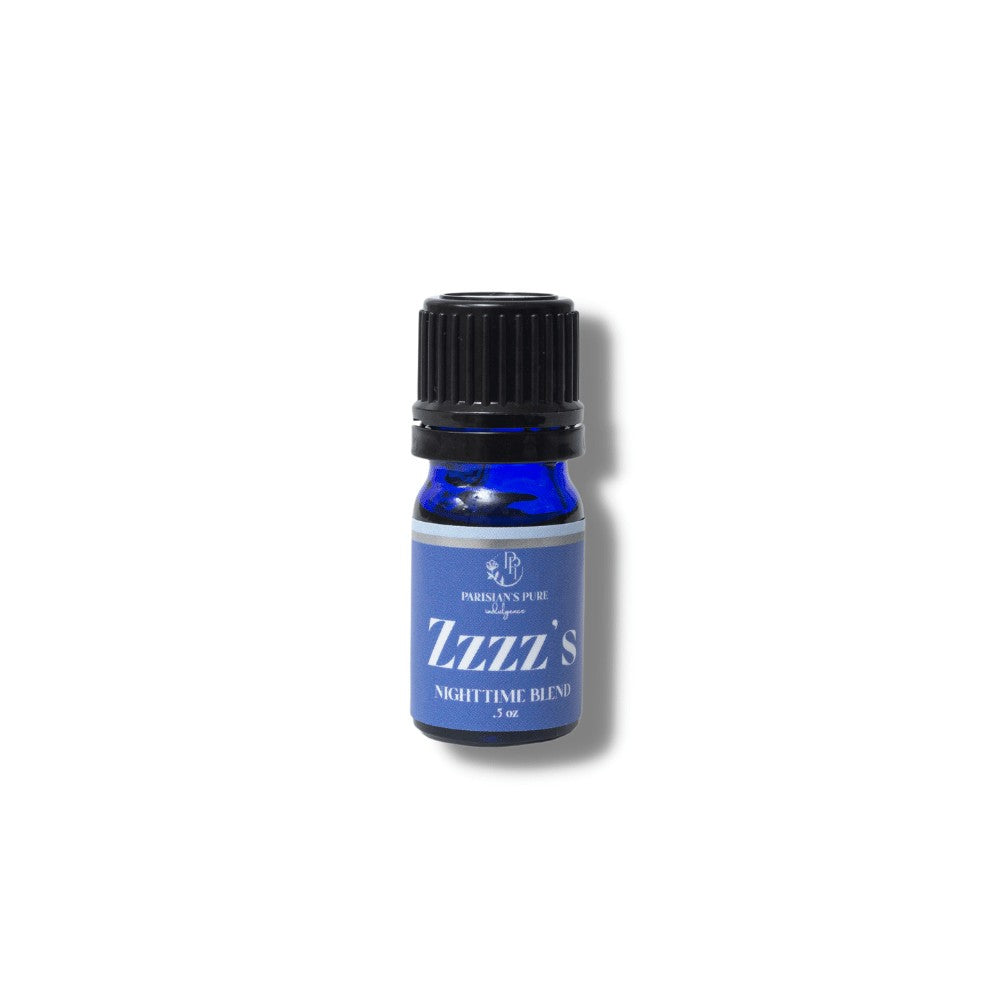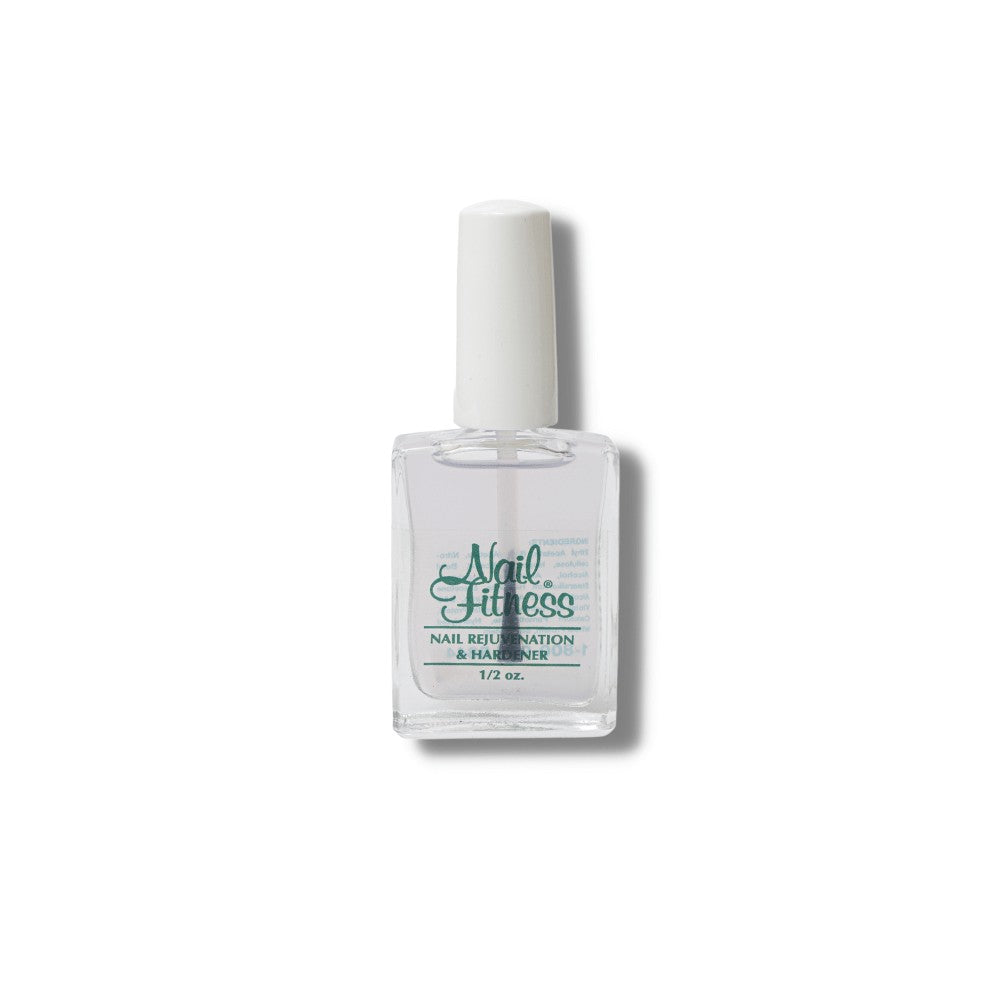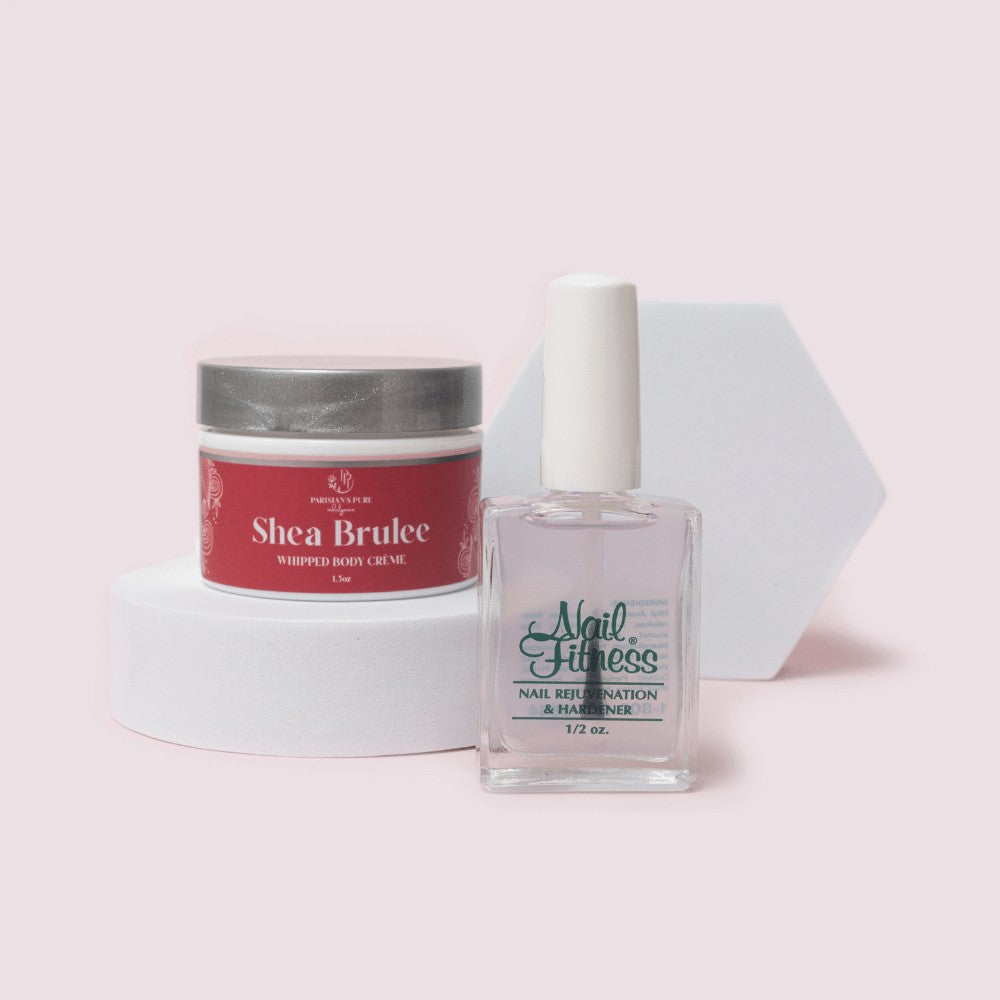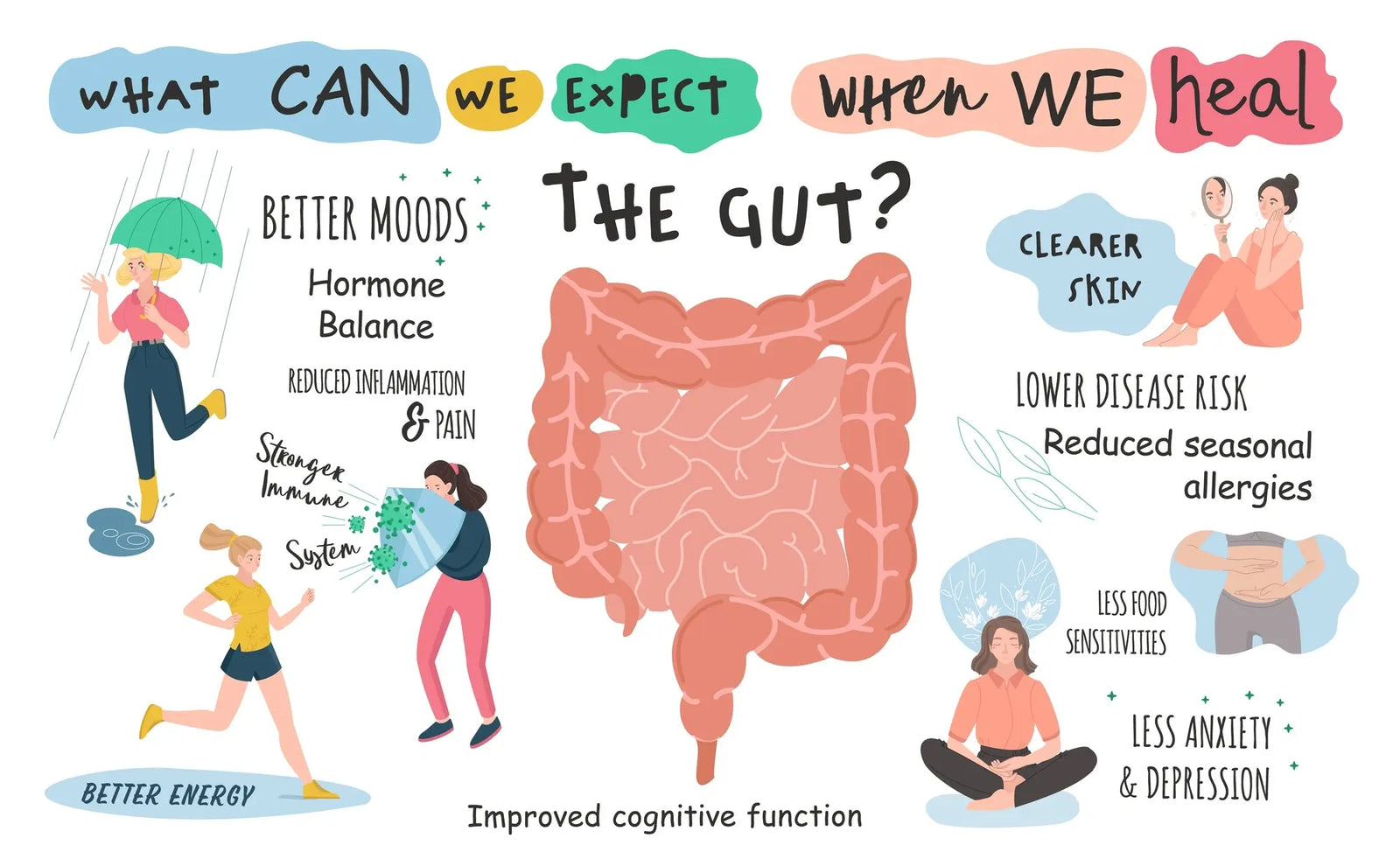How our gut health affects our skin
Most of you know I'm passionate about women's wellness post 50. The past couple of months I've been studying mental clarity, digestion, gut health, and our skin. It's led me down a path of revelation.
Our guts..specifically, our gut microbiome is linked to our overall health. It shapes everything from our brain health to our immunity, our mental health, our ability to lose weight and how our skin looks.
I've enjoyed listening to a number of podcasts by gastroenterologist and gut health expert, Dr. Will Bulsiewicz and will be purchasing his book titled, "Fiber Fueled." I encourage you to take a listen to him on YouTube. It could be life changing.
Your gut and your skin are more connected than you might think. It's like they're texting each other all day long through something scientists call the "gut-skin axis." Here's how it works:
Inflammation
When your gut is unhappy (like when you eat too much junk food), it can cause inflammation throughout your body. This inflammation can show up on your skin as redness, acne, or even speed up wrinkle formation.
Nutrient absorption
Your gut is like a processing plant for all the good stuff in your food. When your gut is working well, it makes sure your skin gets all the vitamins and minerals it needs to stay plump and healthy.
Skin barrier function
A healthy gut helps keep your skin's protective barrier strong. This barrier is like your skin's personal bodyguard, keeping moisture in and bad stuff out.
Immune system support
Your gut is a major player in your immune system. When it's in good shape, it helps your skin fight off infections and heal faster.
Hormone balance
Your gut helps regulate hormones, which can affect things like oil production in your skin. Balanced hormones often mean clearer, healthier-looking skin.
Antioxidant production
Some gut bacteria produce antioxidants, which help protect your skin from damage caused by things like sun exposure and pollution.
Collagen production
A healthy gut can support better collagen production, which keeps your skin firm and bouncy.
Symptoms of an unhealthy gut
Persistent Fatigue & Insomnia
Whether you're struggling to fall asleep or find that you aren't well-rested in the morning, your sleep woes could potentially be rooted in your gut.
Fiber-rich diets are great for the gut and for sleep. Eating the right amount of fiber nourishes gut bacteria (the good guys) and positively influences sleep patterns.
Brain Fog
Communication between our gut and our brain is ongoing. Bad gut health affects the brain and can cause symptoms of brain fog
For instance, some people develop brain fog after eating certain foods (Thanksgiving dinner perhaps), such as gluten. Why? because it triggers inflammation in the gut. If you have digestive problems, your gut may be playing a role in brain fog.
Acid reflux & heartburn, diarrhea, and constipation
-
Acid reflux and heartburn:
These can indicate an imbalance in stomach acid production or issues with the lower esophageal sphincter, which may be related to gut bacteria imbalances or inflammation in the digestive tract. -
Diarrhea:
Frequent loose stools can be a sign that your gut is having trouble processing food and eliminating waste properly. This could be due to an overgrowth of harmful bacteria, food intolerances, or inflammation in the gut. -
Constipation:
Difficulty passing stools or infrequent bowel movements can indicate that your digestive system is not functioning optimally. This could be related to a lack of fiber in your diet, dehydration, or an imbalance in gut bacteria.
It's important to note that while these symptoms can indicate gut health problems, they can also be caused by other factors. If you're experiencing persistent digestive issues, it's best to consult with a healthcare professional for proper diagnosis and treatment.
How to support gut health
 Drink plenty of liquids such as water, green tea, or lemongrass tea
Drink plenty of liquids such as water, green tea, or lemongrass tea
Hydration improves the health of tissues in your body and has a positive impact on the functioning of your digestive tract.
Add prebiotics to your diet
Prebiotics are various foods in your diet that can stimulate the growth and balance of healthy bacteria in the colon.
Good sources of prebiotics are citrus fruits, kiwi fruit (try ), pears, leafy greens, and cruciferous microgreens (broccoli, cabbage). I put microgreens on my avocado toast with a splash of balsamic vinegar. Yummy.
Prebiotics are not appropriate if you have IBS.
Include probiotics
Probiotics are a certain type of friendly bacteria that provide health benefits when eaten. They’re often taken as supplements that are supposed to help colonize your gut with good microorganisms.
Probiotic foods include yogurt, miso (I use in my soups and to add flavor to cooked vegetables and grains) kefir, sauerkraut, tempeh, pickled vegetables, and kimchi.
The main job of probiotics, or good bacteria, is to maintain a healthy balance in your body. Think of it as keeping your body in neutral.
Good bacteria keep you healthy by supporting your immune function and controlling inflammation.
Certain types of good bacteria can also:
•Help your body digest food.
•Keep bad bacteria from getting out of control and making you sick.
•Create vitamins.
•Help support the cells that line your gut to prevent bad bacteria that you may have consumed (through food or drinks) from entering your blood.
•Break down and absorb medications.
Ditch processed food & added sugars
Rely on naturally present sugars such as those in fruit. Consider eating a more plant-based diet. Eating a plant-based diet that includes fermented foods and fiber from colorful (think rainbow) fruits and vegetables supports a healthy gut.
Sugar is the enemy to our gut. It causes inflammation. Too much sugar can reduce beneficial bacteria leading to a leaky gut syndrome. It can increase pathogenic bacteria, which is the species of microorganisms that cause diseases.
Eat These Foods Daily

Fruits - the more variety the better, if they are thin-skinned, buy organic. I just found a delicious variety of kiwi, and I eat the skin too. Delish! Blueberries are a must, they dramatically improve gut bacteria and reduce inflammation
Fermented foods - pickled vegetables, sauerkraut, miso, yogurt
Mushrooms - a variety is best
Sea Vegetables - seaweed. Here's a great reference for sea vegetables.
Legumes - garbanzo, pinto, black beans, white beans, etc.
Aromatics - garlic & onion
Whole Grains - farro, quinoa, brown rice, whole wheat pasta
Nuts - 1 oz daily. Walnuts, almonds, cashews, pine nuts
Greens - microgreens, broccoli, brussels sprouts, kale, etc. The more variety the better.
A good diet and a reset of our gut microbiome takes time and effort, usually two to three months.
It also takes dedication to improve your lifestyle - setting the alarm, going to bed early, taking time to move your body. Nutrition, rest, and relaxation are all important elements of taking care of your body.
A healthy gut is a key factor to maintaining a healthy weight and beautiful, glowing skin at any age. Individual responses to dietary changes can vary, and it's always best to consult with a healthcare professional before making significant changes to your diet, especially if you have existing health conditions.

